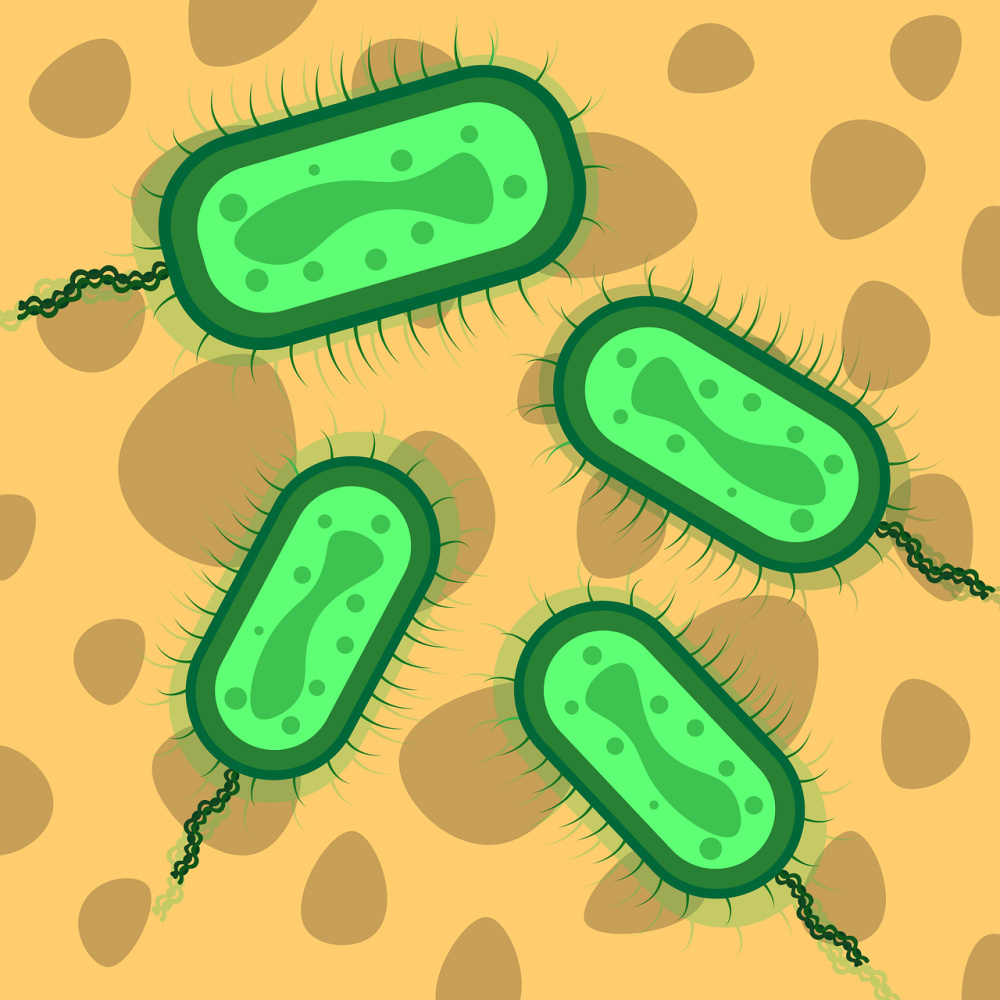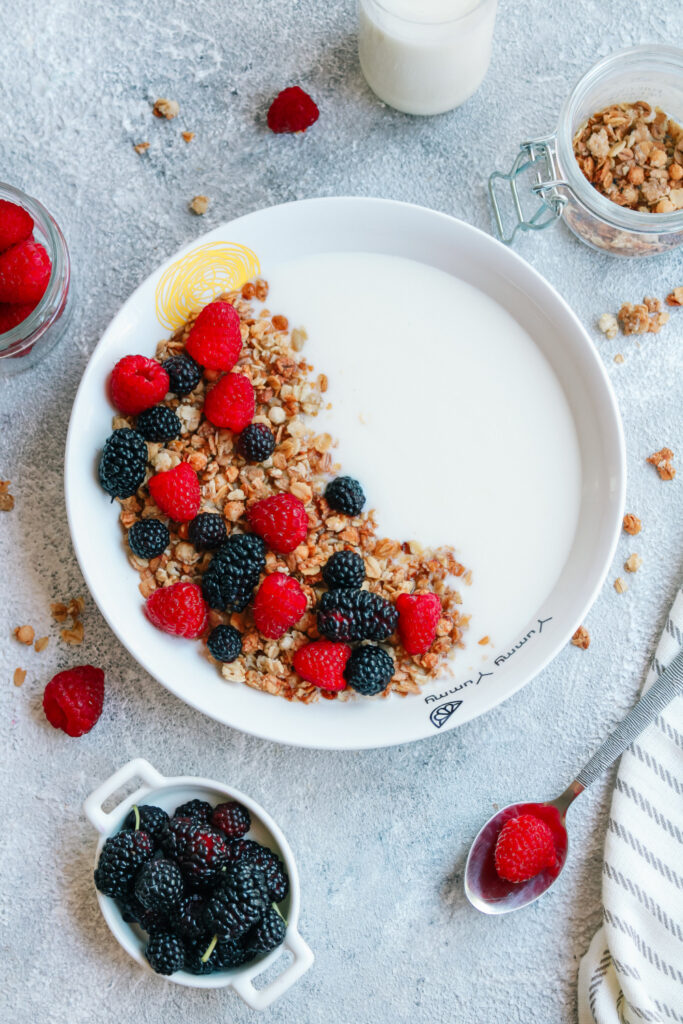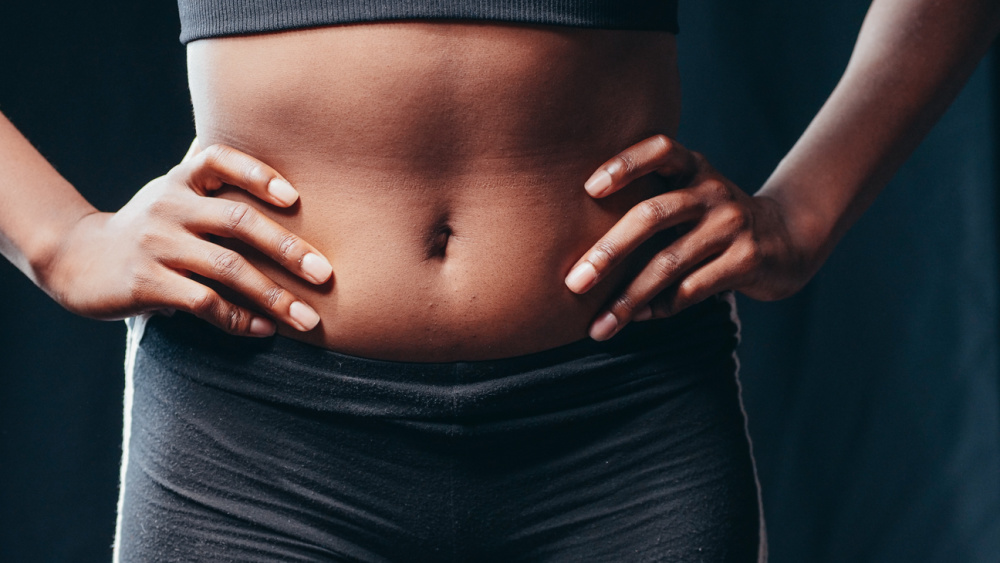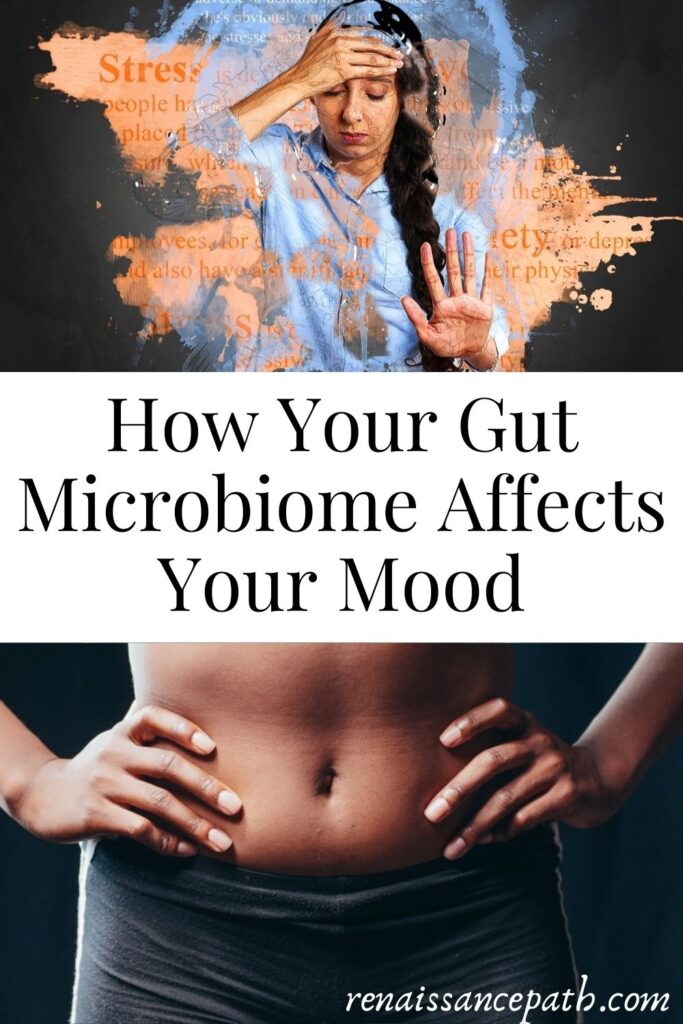
How Your Gut Microbiome Affects Your Mood
It’s hard to believe but did you know that your gut microbiome can impact your mood? Yup it sure can. We, humans, have trillions of bacteria cells (flora) in our gut. Mostly in our colon. We have good bacteria and some bad bacteria. Ideally, there is a balance between them.
But sometimes there can be too much bad bacteria or too much of a specific bacteria that can be attributed to some not-so-nice symptoms. I’m talking about anxiety and depression.
Neurotransmitters in the Gut
Researchers now know that gut bacteria produce neurotransmitters GABA, serotonin, and dopamine. These bacteria can also influence the metabolism of those neurotransmitters. This can affect what is circulating in the body. This can affect mood. Most human bacteria produce neurotransmitters like serotonin and dopamine which enable communication to neurons in the enteric nervous system of the gut.
These bacteria also produce butyrate. Butyrate is a short-chain fatty acid that provides fuel and also protects the integrity of the gut lining(1). Butyrate is produced by your gut bacteria as it digests dietary fiber. One of the main benefits of butyrate is improved mood. It is also known to reduce anxiety and depression symptoms. You can optimize your butyrate by consuming resistant starches.
Gut-Brain Connection
You may have heard some people refer to their second brain. They are actually referring to their gut. Similar to the nervous system where messages and neurochemicals get sent through the nervous system we also have the enteric nervous system(ENS) which also sends information through this system, through the vagus nerve to the brain. The ENS is also involved with the parasympathetic nervous system (PSNS). The job of PSNS is rest and digest.
Information between the gut and brain is bidirectional, meaning it goes both ways but information moves faster from gut to brain than the brain to gut.
How Gut Impacts Mood
There are a few ways the gut impacts mood. Did you know that 90% of serotonin is made in the gut, not the brain? Crazy huh? I was surprised by this too. Serotonin is your happy hormone it makes you feel good. When you don’t have enough serotonin you can feel depressed and anxious.
Serotonin is made by enterochromaffin (EC) cells. They are a type of enteroendocrine cell and neuroendocrine cell. These cells are located in your digestive tract. Researchers have found that there are certain gut microbes that influence EC’s to produce serotonin(2).

There was a study of women who were given a fermented milk probiotic product twice daily for 4 weeks. The probiotic drink contained these strains of bacteria Streptococcus thermophiles, Lactococcus lactis subsp Lactis, Lactobacillus bulgaricus, Bifidobacterium animalis subsp Lactis. Twelve women were given this probiotic drink and there were eleven in the control group. The women had MRI imaging before and after the intervention to measure brain response to emotional faces attention task and resting brain activity. The results were astonishing.
Women who had the probiotic drink had significant changes in how their brains reacted to the emotional task. The control group had more hyperactivity in their brain during the emotional task(3).
This study is just one example of how your gut microbiome affects your anxiety and mood. Consuming a diet with good bacteria can really impact our moods.
GABA is an inhibitory neurotransmitter. It has a calming effect. It can reduce feelings of anxiety and stress. There is research showing that Bifidobacterium strains increase GABA(4).
There was a study of 1,054 individuals enrolled in the Flemish Gut Flora Project, the scientist discovered two different strains of gut bacteria called Coprococcus and Dialister. These microorganisms were found in individuals who were depressed despite receiving treatment for depression(5).
In another double-blind, placebo-controlled study, individuals who suffered from depression took a probiotic with the strains Lactobacillus helveticus and Bifidobacterium longum for eight weeks(6). Those who took the probiotic experienced a significant decrease in their BDI( Beck Depression Inventory)scores.
Without a doubt, science is starting to show that your gut microbiome affects your mood. I find this so exciting and I feel in the future we will see start to see probiotics being used in treatment for anxiety and depression.

How to Feed Your Gut Good Bacteria
Eating a well-balanced diet helps. Eat fruit and vegetables and nut and seeds. Choose meat that is raised without hormones and antibiotics as those can negatively impact your gut health.
If you’re trying to get a more diverse gut microbiome it’s recommended you include fermented foods in your diet. Fermented foods like homemade sauerkraut, fermented veggies, yogurt, kefir, and kimchi.
Did you know that eating fermented veggies like sauerkraut was found to have 28 different types of bacteria(7)? Yes its true!
According to Dr Mercola, one 2 ounce serving of homemade sauerkraut contains more probiotics than a bottle of 100 capsules. Dr. Mercola said they sent off the sauerkraut to a lab to have it analyzed. It was found to have literally ten trillion bacteria in a 4-6 ounce serving!
Including probiotics in your diet benefits your gut microbiome. Probiotics were shown in this study here to reduce symptoms of anxiety, depression, ASD, and OCD. It also improved memory.
Eat resistant starch. Resistant starch feeds your gut microbiome which then produces butyrate which provides fuel for your cells in your gut lining.
What exactly is resistant starch? It is a starch that mostly moves through your stomach and small intestine undigested. When it reaches your colon it feeds your gut bacteria.
You can buy resistant starch as a supplement or you can just eat it in food form. There are different categories for resistant starch. Not all starch affects everyone the same. For some people certain starches cause their blood sugar to rise too much(8). Starches are rated RS1, RS2, RS3, and RS4.
Here are some foods that contain resistant starch.
RS1-foods coated with seeds or germ, unmilled or partially milled grains or seeds, legumes such as soybean seeds, beans, lentils, and dried peas.
RS2-green bananas, raw potatoes, high amylose corn maize
RS3-would be cooked resistant starch like potatoes or rice and then cooled
RS4-is man-made resistant starch. Starch ethers, modified starch, dextrin, and polydextrin.

Conclusions
The gut microbiome has an impact on mood and mental health. Eating a diverse diet with resistant starches and regularly consuming fermented food or including probiotics in your routine can help with depression and anxiety and improve your mood.
It’s best to avoid meat that is fed steroids and antibiotics as this can negatively affect your gut microbiome.
Have you noticed a difference in your mood while taking probiotics or eating more fermented foods? Let me know in the comments.
Much Love,
Melissa
Read more about gut health in this post here.
This website is for educational purposes only. The information provided by Renaissance Path is not intended to diagnose, treat, or cure any diseases. Please consult a qualified health care professional for medical advice.
[…] If you like reading about how they can enhance your health and well-being please check out this post about your gut microbiome and probiotics. […]